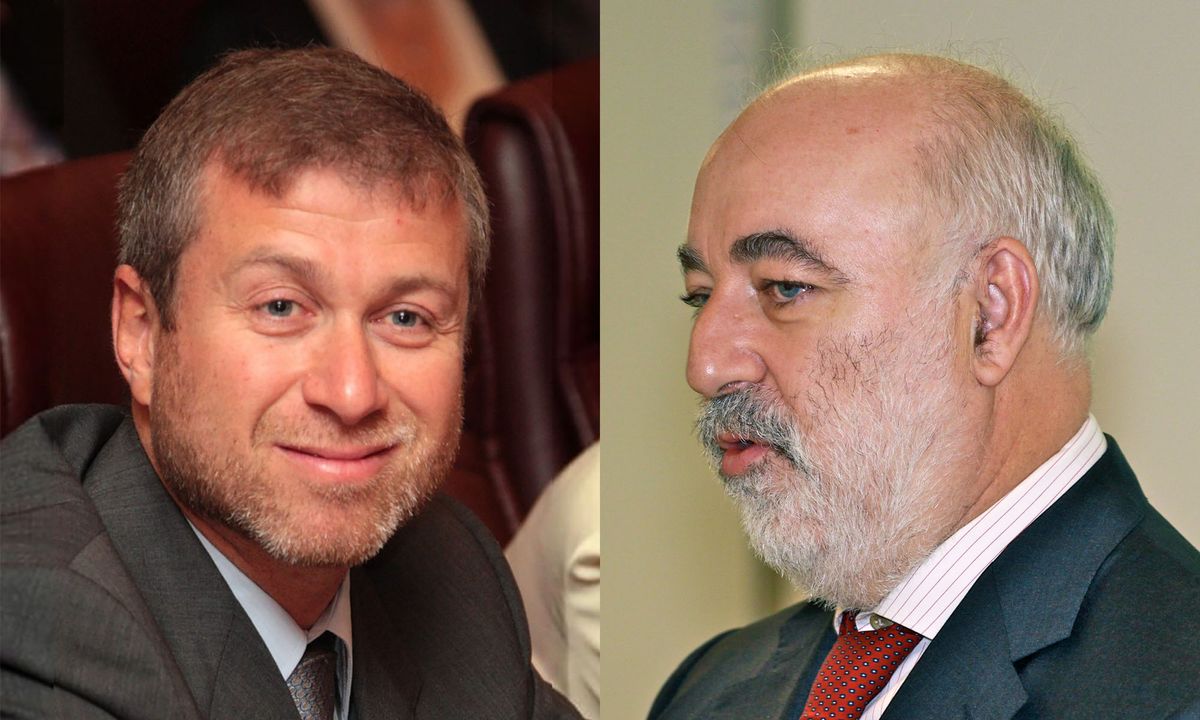Federal prosecutors in New York have subpoenaed several auction houses for years of sales records as part of ongoing efforts to identify violators of Russian sanctions. The search, reported by Bloomberg, is meant to aid investigations into the use of offshore financial systems to hide art and illicit transactions.
Among the ultrarich named in the subpoenas are Russian tycoons Andrey Melnichenko, Viktor Vekselberg and Roman Abramovich, as well as Ukrainian billionaire Ihor Kolomoisky, whose home was recently raided in an anti-corruption bust. Auction houses linked to the probe have not been identified, but they may include major firms like Christie’s, Sotheby’s and Phillips. Sotheby’s told The Art Newspaper in October that it “conducts business in strict compliance with all applicable laws and regulations, including global sanctions, which we are absolutely rigorous about following, and monitor closely for any updates to the lists. Checking our clients against sanctions lists is just one step in a comprehensive series of checks undertaken by Sotheby’s to ensure the company achieves the highest possible global standard.”
Since Russia’s invasion of Ukraine, the US, along with other countries and the European Union, has imposed an unprecedented range of sanctions on high-profile Russian individuals and companies with ties to Vladimir Putin. But complex networks of money launderers and other co-conspirators have enabled some of the wealthy to sidestep these restrictions, from purchasing or selling art to supporting Russia’s military-industrial complex. The crackdown on these “professional sanctions evaders” has led prosecutors in Manhattan to inquire in recent months about specific works of art bought years ago, a source told Bloomberg.
Abramovich, who co-founded the Garage Museum of Contemporary Art with his ex-wife Dasha Zhukova, was an early inclusion on the UK government and EU’s lists of sanctioned oligarchs. He is believed to be the buyer of Francis Bacon and Lucian Freud paintings that sold for record prices at auction in 2008—respectively, $86.3m and $33.6m (including fees). Shortly after Abramovich was placed on sanctions lists last March, Vekselberg—first sanctioned by the US in April 2018—was hit with a new round of restrictions by the US, then the UK. The Tate also severed ties with Vekselberg, a patron of the museum, that month.
As probes into auction houses continue, US authorities are seeking to extradite one UK businessman suspected of unlawfully transferring art to help a Russian oligarch evade sanctions. In October 2022, the businessman, Graham Bonham-Carter, was indicted for allegedly attempting to ship more than a dozen works of art belonging to Oleg Vladimirovich Deripaska out of the US to London in 2021. According to the Department of Justice, an unnamed auction house had advised Bonham-Carter that it had reason to believe the artwork belonged to Deripaska; the businessmen falsely denied the ownership as well as the source of a payment made to ship the art.
Bonham-Carter faces three counts of conspiring to violate and evade US sanctions, one count of violating the International Emergency Economic Powers Act and one count of wire fraud. Each carries a maximum sentence of 20 years in prison.


